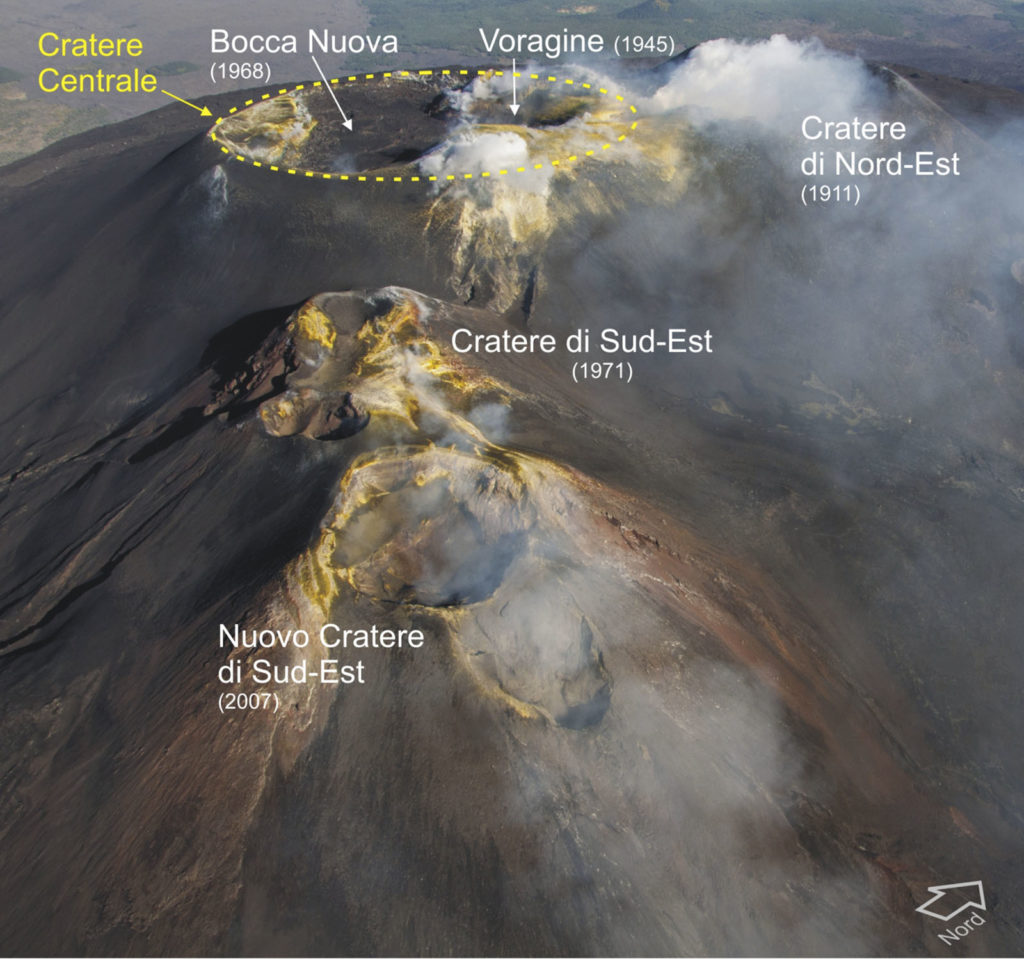Without a doubt, this is the most beautiful and fascinating part of the “Muntagna”, where eruptions occur most often, especially since 2001.
This area also has particular charm because it is the only active volcano summit area in the world to have
4-5 summit craters
that are clearly distinct from each other and behave independently. These characteristics have always intrigued scientists from all over the world, though they are all yet to agree on an explanation. However, the summit crater area was not always configured in this way.
 Until 1911, there was only one central crater in the Etna apex area. In 1911, the north-east crater was formed. Later, inside the central crater, the Voragine (1945) and the Bocca Nuova (1968) were formed. In 1971, the south-east crater formed on the south-east flank of the central crater and remained active until 2007. Two new cones joined it, which greatly increased its size.
Until 1911, there was only one central crater in the Etna apex area. In 1911, the north-east crater was formed. Later, inside the central crater, the Voragine (1945) and the Bocca Nuova (1968) were formed. In 1971, the south-east crater formed on the south-east flank of the central crater and remained active until 2007. Two new cones joined it, which greatly increased its size.
Today, the north-east crater is the highest point of Etna (3324 metres above sea level, measured in December 2015 by the INGV – the Italian National Institute of Geophysics and Volcanology).